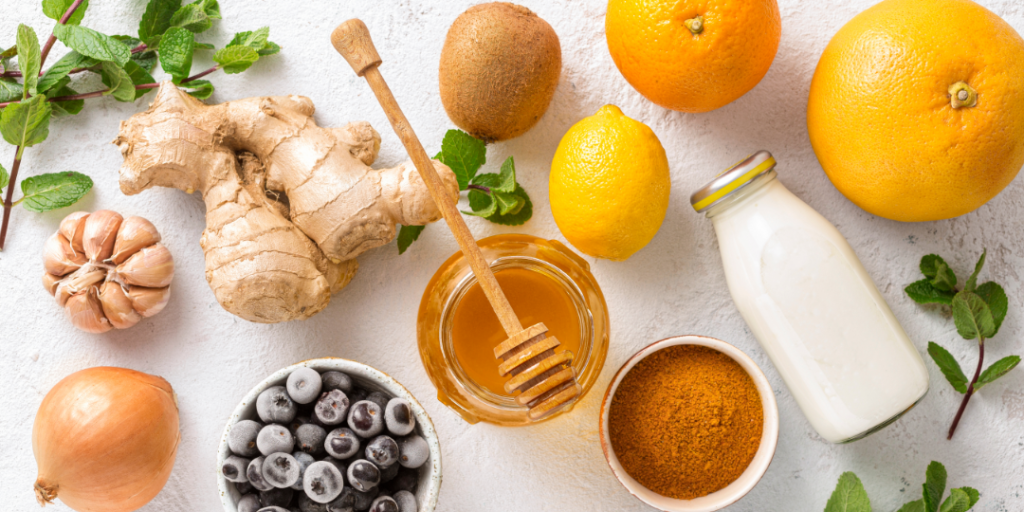Foods and Tips for Boosting Energy Levels

In our busy world, keeping energy levels up all day can be tough. Whether you’re working, exercising, or handling daily tasks, your diet is key to staying energized. Here’s a guide to what you should eat for a natural energy boost and some practical tips to help maintain your energy throughout the day.
1. Complex Carbohydrates: Slow and Steady Energy
Complex carbs are excellent for long-lasting energy. Unlike simple sugars that cause quick but short-lived spikes, complex carbs break down slowly, offering a steady glucose release into your bloodstream. Top choices include:
- Whole Grains: Foods like oatmeal, quinoa, brown rice, and whole-grain bread are high in fiber and essential nutrients.
- Sweet Potatoes: These are rich in vitamins, minerals, and complex carbohydrates.
2. Proteins: Essential for Sustained Energy
Protein is vital not only for repairing and building tissues but also for maintaining energy by stabilizing blood sugar levels.
- Lean Meats: Chicken, turkey, and lean cuts of beef or pork offer high-quality protein without excess fat.
- Plant-Based Proteins: Beans, lentils, chickpeas, tofu, and tempeh are great protein sources for vegetarians and vegans.
3. Healthy Fats: Energy for Your Brain and Body
Healthy fats are crucial for long-term energy and brain function. They aid in the absorption of fat-soluble vitamins (A, D, E, and K) and provide a dense source of energy.
- Avocados: Rich in monounsaturated fats, they are perfect for a quick energy boost.
- Nuts and Seeds: Almonds, walnuts, chia seeds, and flaxseeds are packed with omega-3 fatty acids and protein for sustained energy.
4. Fruits: Quick Natural Energy
Fruits are great for an immediate energy lift thanks to their natural sugars, vitamins, and fiber. They offer a quick and healthy energy boost.
- Bananas: Known as nature’s energy bar, bananas are high in potassium and vitamin B6, aiding energy production.
- Berries: Blueberries, strawberries, and raspberries are loaded with antioxidants and fiber, helping to stabilize energy levels.
5. Hydration: The Importance of Fluids
Dehydration, even mild, can cause significant drops in energy. Staying hydrated is crucial for maintaining energy levels.
- Water: Aim to drink at least 8 glasses a day. Carry a water bottle to stay hydrated throughout the day.
- Herbal Teas: Green tea is particularly good for a gentle caffeine boost and is rich in antioxidants.
6. Smart Snacking: Energy Between Meals
Snacking can be beneficial if done wisely. Choose snacks that combine protein, fiber, and healthy fats.
- Greek Yogurt with Berries: A great combination of protein and carbohydrates.
- Nut Butter with Apple Slices: Provides healthy fats, protein, and natural sugars for a balanced snack.
7. Foods to Avoid: Preventing Energy Drains
Certain foods can sap your energy instead of boosting it. Be cautious with:
- Sugary Snacks: They cause a quick energy spike followed by a crash.
- High-Fat Foods: Foods high in unhealthy fats, like fried and processed foods, can leave you feeling sluggish.
- Excessive Caffeine: While moderate caffeine can boost energy, too much can lead to energy crashes and jitters.
Extra Tips for Sustained Energy
- Regular Meals: Don’t skip meals, especially breakfast. Eating regularly helps keep energy levels stable.
- Balanced Diet: Ensure each meal includes a mix of complex carbs, protein, and healthy fats.
- Portion Control: Avoid overeating, which can cause sluggishness, and under-eating, which can lead to energy dips.
By integrating these foods and habits into your daily routine, you can significantly enhance your energy levels and overall well-being. Remember, your diet is not just fuel for your body but also for your mind. Choose wisely to keep your energy high!




